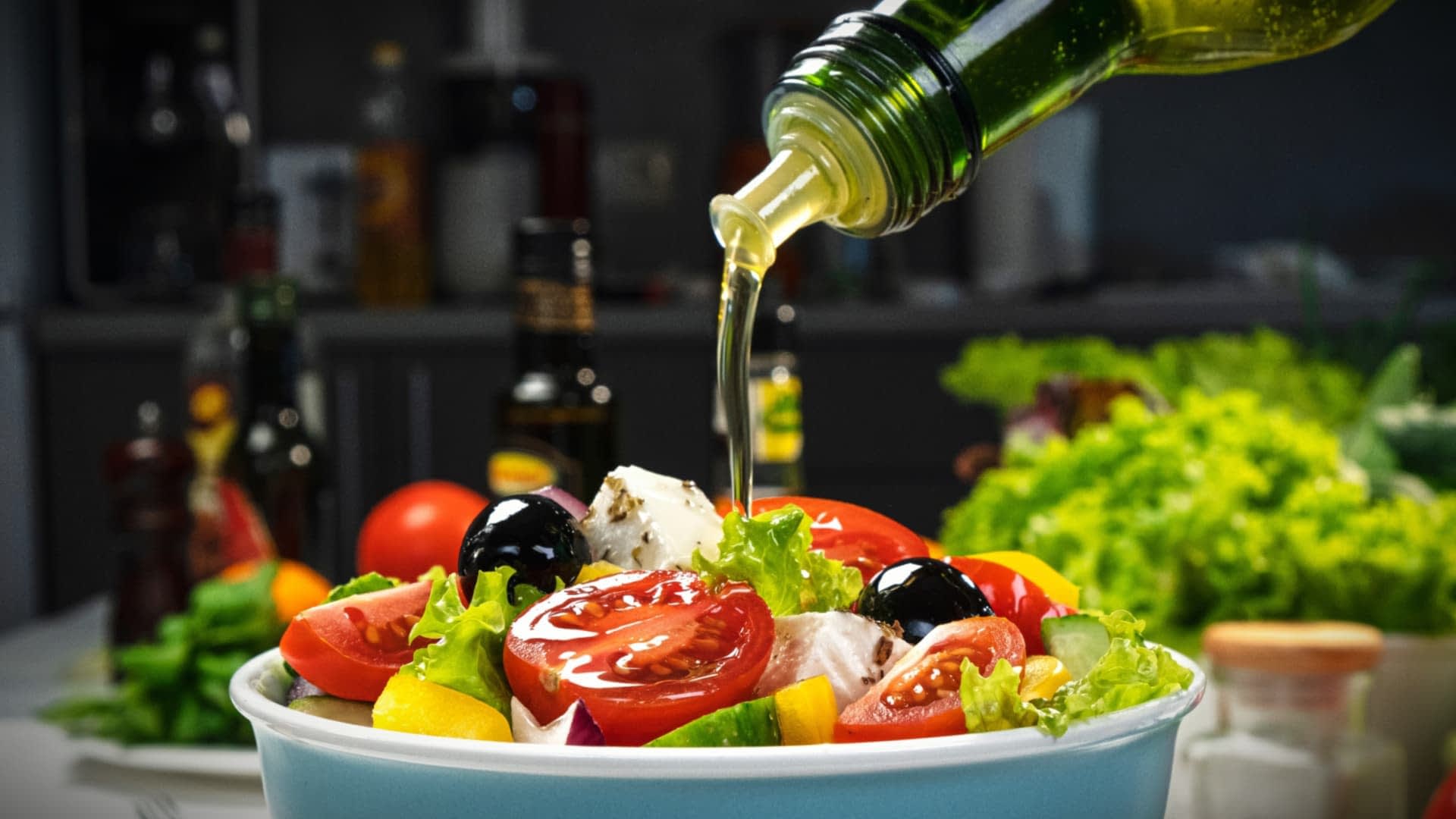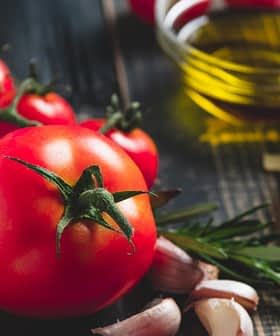 5.7K reads
5.7K readsBasics
Understanding the Positive Effects of Extra Virgin Olive Oil on Cardiovascular Diseases

Cardiovascular diseases are the leading cause of death globally, with coronary heart disease, rheumatic heart disease, and cerebrovascular disease being the most prevalent. Research has shown that daily consumption of extra virgin olive oil can significantly reduce the risk of developing cardiovascular diseases, with studies demonstrating the positive impact of olive oil on cholesterol levels and other conditions related to heart disease. Extra virgin olive oil is rich in monounsaturated fats and polyphenols, which play a crucial role in preventing cardiovascular diseases, making it a healthier and tastier fat choice compared to other options like flaxseed or avocado oil.
Cardiovascular diseases are the leading cause of death globally.
CVDs encompass a range of conditions affecting the heart and blood vessels. The most prevalent among these are coronary heart disease, rheumatic heart disease and cerebrovascular disease.
See Also:Olive Oil BasicsThe New York State Department of Health recently reported that about 695,000 Americans die from heart disease annually, representing one in five deaths in the country. Globally, the World Health Organization estimates that cardiovascular disease accounts for 32 percent of all deaths.
While cardiovascular diseases are triggered by various factors, including genetics, pollution and lifestyle, a growing body of research links daily consumption of extra virgin olive oil, the highest-quality olive oil category, to significantly reducing the risk of developing cardiovascular diseases.
The evidence behind olive oil’s decisive impact
A large-scale trial conducted on thousands of individuals in Spain during the 2010s demonstrated that adherence to the Mediterranean diet and daily consumption of olive oil significantly reduce cardiovascular events in at-risk patients compared to a generic low-fat diet.
The PREDIMED (PREvención con DIeta MEDiterránea) study, published in the New England Journal of Medicine, laid the foundations for further research worldwide.
The Seven Countries Study, conducted since the 1950s across the U.S., Finland, Netherlands, Italy, Greece, Yugoslavia and Japan, also confirmed the critical role of olive oil and the Mediterranean diet in reducing cardiovascular diseases.
This extensive epidemiological study involved 12,000 middle-aged men, revealing that daily consumption of unsaturated fats, such as olive oil, and adherence to the Mediterranean diet significantly lower heart disease risks.
See Also:Health NewsThese studies confirmed the significant impact of dietary behavior on cholesterol levels and other conditions related to the development of cardiovascular diseases.
As a result of these studies, hundreds of scientific publications have explored the unique role of olive oil in human health in recent decades.
Olive oil’s beneficial effects are attributed mainly to its high content of monounsaturated fats. The polyphenols found in the highest grade of olive oil, extra virgin olive oil, further enhance these health benefits.
The role of monounsaturated fatty acids (MUFAs)
Oleic acid, a monounsaturated fatty acid (MUFA), is a critical component of olive oil and is credited with many of the significant health benefits associated with its consumption.
“It is important to note that extra virgin olive oil consists of 60 to 83 percent MUFAs,” said Bruno Tuttolomondo, a full professor of internal medicine at the University of Palermo and director of the internal medicine with stroke care unit at Policlinico Hospital in Palermo.
“The remaining composition includes small percentages of saturated fatty acids, such as palmitic acid and stearic acid,” he added. “Along with polyunsaturated fats, monounsaturated fats are considered ‘good fats.’”
Tuttolomondo said research indicates that a high percentage of MUFAs play a crucial role in preventing cardiovascular diseases.
“This is because MUFAs influence cholesterol and LDL levels, reduce LDL oxidation and affect the composition of atherosclerotic plaques, thereby exerting a cardioprotective role,” he said.
LDL stands for a low-density combination of fat and protein. It is a type of cholesterol that can accumulate in the bloodstream and form plaques in the arteries, leading to atherosclerosis.
“MUFAs are not the only important components of extra virgin olive oil, but they are the most abundant,” Tuttolomondo said. “This alone qualifies extra virgin olive oil as one of the ‘good fats.’”
Polyphenols are critical to CVD risk reduction
Polyphenols are a diverse group of hundreds of substances found in many foods.
Extra virgin olive oil contains dozens of these polyphenols, which are rare and especially valuable due to their high bioavailability.
This means that, once consumed, they reach areas of the body where they can exert their effects, including potent antioxidant and anti-inflammatory properties.
“Polyphenols certainly play a role in cardiovascular health and are the subject of significant research due to their cardioprotective actions,” Tuttolomondo said.
One of the most researched polyphenols for cholesterol and cardiovascular diseases is oleuropein.
“Many researchers, including [Francesco] Violi’s team at La Sapienza University in Rome, are investigating oleuropein,” Tuttolomondo said. “They discovered that oleuropein helps stabilize lipid plaques and reduce LDL oxidation.”
“They also found that it modulates the impact of diabetes on vascular and cardiovascular health,” he added.
EVOO might enhance diabetes prevention
According to the World Health Organization, 422 million people have diabetes globally. Research has shown that extra virgin olive oil and adherence to the Mediterranean diet can significantly lower the risk of developing the disease.
Diabetes is linked to cardiovascular diseases because it can lead to excessive sugar in the blood, which can damage the blood vessels that supply the heart. This damage can reduce the supply of oxygen and nutrients to the heart, significantly increasing the risk of heart disease.
“For some time, the impact of extra virgin olive oil on diabetes was evaluated indirectly,” Tuttolomondo said. “In numerous studies, including those conducted by my research group, we analyzed adherence to the Mediterranean diet, which considers extra virgin olive oil the primary fat. It is well known that adherence to the Mediterranean diet results in a lower incidence of diabetes.”
See Also:Biophenols in extra virgin olive oil Linked to Improved Outcomes in Obesity and PrediabetesFurther research has built on these findings. “We now know that extra virgin olive oil and phenols such as oleuropein have effects similar to some compounds used in diabetes therapies, as they increase insulin sensitivity,” Tuttolomondo said.
“We now have strong evidence of the preventive role and regulation of glycemic levels by daily and regular consumption of extra virgin olive oil, especially when consumed for many years,” he added.
“While you cannot expect to lower blood sugar by simply eating a salad with extra virgin olive oil, daily, familial and traditional consumption of extra virgin olive oil has proven effective in reducing the prevalence of diabetes,” he noted.
Olive oil is the healthier, tastier fat choice
“One of the unique qualities of extra virgin olive oil is its flavor. In addition to its wide-ranging health benefits, it also offers an exquisite taste,” Tuttolomondo said. “No other cooking fat combines favorable organoleptic properties with beneficial nutrients like extra virgin olive oil. It is a small miracle, combining health and taste.”
However, he emphasized that other fats can also benefit human health.
“Consider polyunsaturated fats like Omega‑3 and Omega‑6, which have been shown to play a role in cardiovascular disease prevention. Still, none of them compare to extra virgin olive oil in daily use,” Tuttolomondo said. “Extra virgin olive oil is the centerpiece of every lunch and dinner for those who follow the Mediterranean diet.”
“When we talk about Omega‑3 and Omega‑6, we think of fats from blue fish or almond extracts. While some people eat five almonds for lunch, it’s impractical to base a diet on almonds,” he added.
See Also:The Flavors of Extra Virgin Olive OilHealthy fats like pumpkin seed or flaxseed oil have beneficial profiles but do not offer the same organoleptic properties as extra virgin olive oil.
“They are beneficial fats, but consider flaxseed oil; it has no flavor, so it cannot motivate people through taste,” Tuttolomondo said. “In my opinion, we need to attract people to prevention by appealing to their sense of taste.”
Meanwhile, avocado oil has been the subject of several studies. “From a palatability standpoint, it is virtually flavorless,” Tuttolomondo said. “It contains a significant amount of polyunsaturated fats, but I don’t think there are enough studies on its polyphenolic content.”
How much extra virgin olive oil should be consumed?
Extra virgin olive oil should be consumed daily to reap its health benefits.
However, not all extra virgin olive oils are the same. While oleuropein and other polyphenols can significantly benefit human health, the amount and type of phenols vary among extra virgin olive oils.
“Polyphenol content depends on factors including cultivar, cultivation area, processing methods, and external temperature,” Tuttolomondo said. “There is a threshold of polyphenol content that characterizes a high-quality extra virgin olive oil.”
See Also:Tips for Selecting High-Polyphenol Olive Oils“Polyphenols are one of the criteria for evaluating extra virgin olive oil,” he added. To have a significant effect, it should contain no less than 250 to 350 milligrams per kilogram.”
“It has been hypothesized that higher levels of polyphenols correspond to greater cardioprotective effects,” Tuttolomondo continued. “However, we should always remember the key role played by MUFAs, which are the foundation of all extra virgin olive oils.”
While excessive olive oil consumption can lead to excessive calorie intake, researchers have worked to define recommended daily doses of extra virgin olive oil.
“Many studies indicate that 20 grams of extra virgin olive oil can optimize the benefits of the Mediterranean diet,” Tuttolomondo said. “This equates to about one to one and a half tablespoons.”
“However, intervention studies have evaluated up to four tablespoons per day for cardiovascular effects,” he added. “Considering weight regulation and overall caloric intake, I would say that the more extra virgin olive oil we consume, the better.”
Know the Basics
Things to know about olive oil, from the Olive Oil Times Education Lab.
Extra virgin olive oil (EVOO) is simply juice extracted from olives without any industrial processing or additives. It must be bitter, fruity and pungent — and free of defects.
There are hundreds of olive varieties used to make oils with unique sensory profiles, just as many varieties of grapes are used in wines. An EVOO can be made with just one variety (monovarietal) or several (blend).
Extra virgin olive oil contains healthy phenolic compounds. Substituting a mere two tablespoons of EVOO per day instead of less healthy fats has been shown to improve health.
Producing high-quality extra virgin olive oil is an exceptionally difficult and costly task. Harvesting olives earlier retains more nutrients and extends shelf life, but the yield is far less than that of fully ripe olives that have lost much of their healthy compounds.









